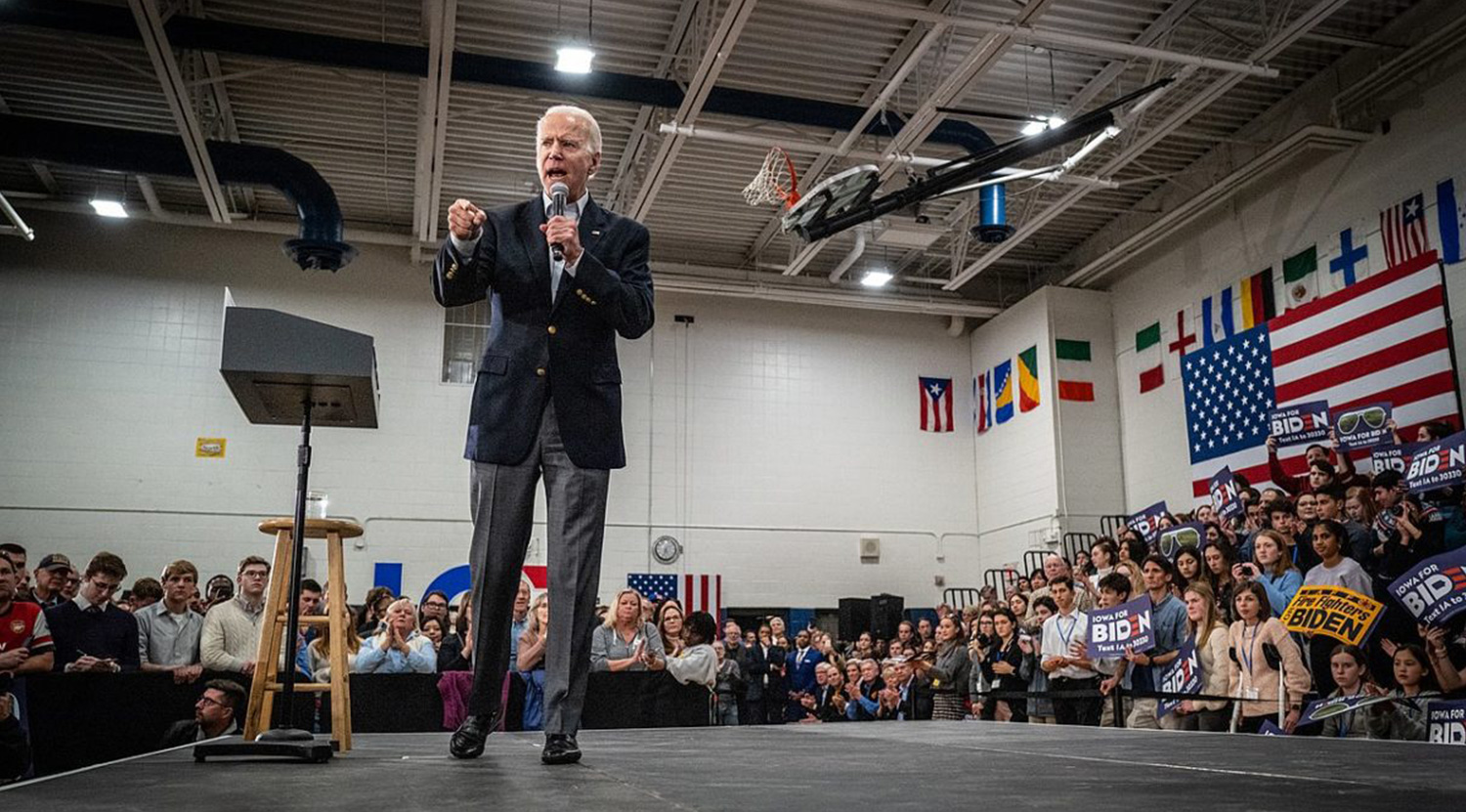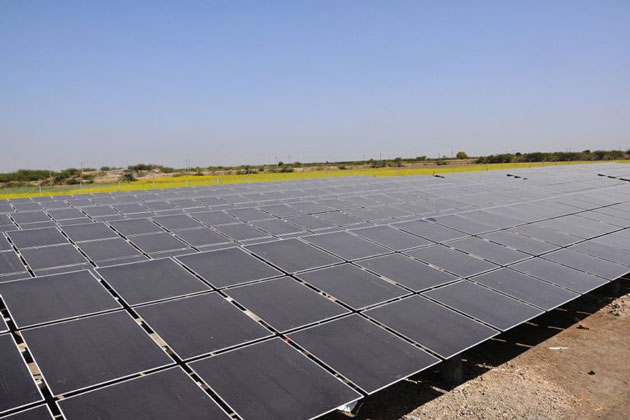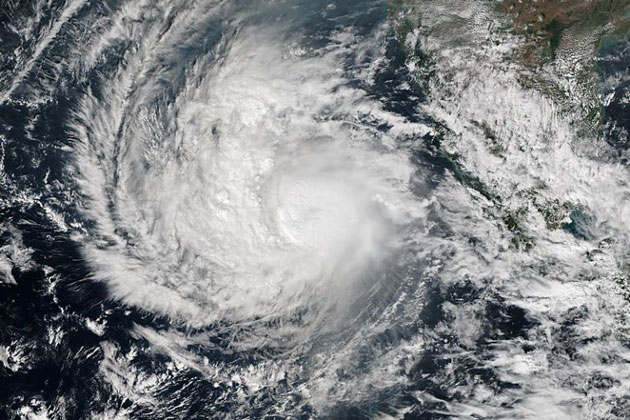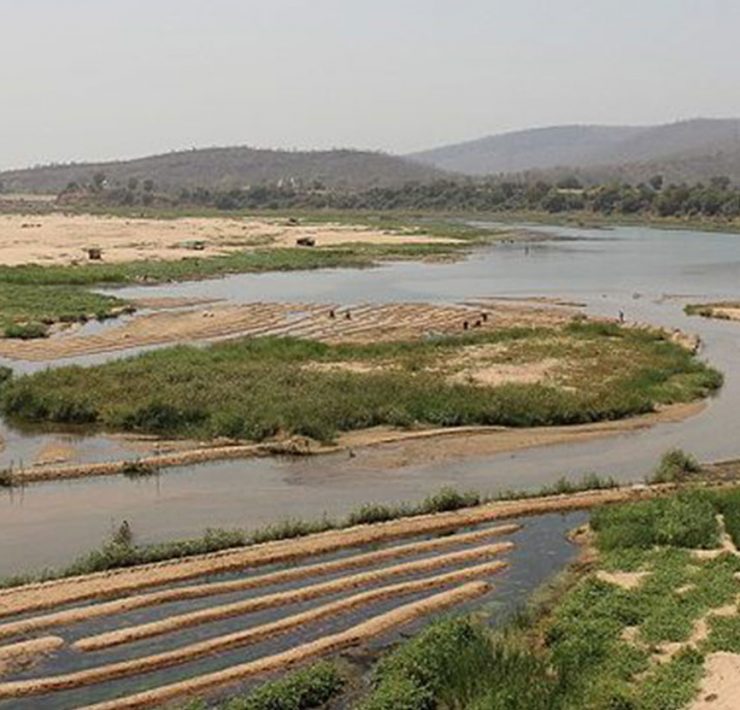Joe Biden’s presidency offers a return to climate change dialogue between India and the U.S.

- With Joe Biden elected as the next president of the United States, there is new hope for cooperation on climate change and energy, as climate-related issues and rejoining the Paris Agreement were core to the Democrat leader’s campaign in the run up to the 2020 presidential elections.
- Data sharing, Indian Ocean monitoring, phasing out hydrofluorocarbons and technology and investment could be some areas of cooperation, point out scientists and experts.
- Indian experts anticipate that before any meaningful cooperation can take place between the two countries, the U.S. needs to renew its commitment to dealing with climate change, an area that had taken a backseat during the four years of the Donald Trump administration.
The victory of Democrat leader Joe Biden in the 2020 U.S. Elections could trigger a new chapter of cooperation with India on climate change and energy issues. In the run-up to the elections, Biden had laid out a detailed plan to address climate change, including re-joining the Paris Agreement which his predecessor Donald Trump had withdrawn from.
India has enjoyed close cooperation with the United States on climate change and energy issues during former President Barack Obama’s eight-year tenure. But many observing the U.S.-India relationship have noted that this area of cooperation took a backseat during Donald Trump’s presidency as the U.S. even pulled out of the Paris Agreement, an international agreement that aims to limit the global temperature rise well below two degrees Celsius above pre-industrial levels and to pursue efforts to limit the temperature increase even further to 1.5 degrees Celsius.
Jagannath P. Panda, who is a research fellow and centre coordinator, East Asia at the Institute for Defence Studies and Analyses (IDSA), New Delhi, explained to Mongabay-India during the Trump administration’s time, the India-U.S. relationship was primarily based on defence-related cooperation. “But during Mr Joe Biden’s presidency, the focus is expected to shift back to sociopolitical, cultural, bilateral and a range of multilateral issues. Joe Biden’s policies are expected to refocus on multilateral issues and trade deals – something that was neglected during the Trump administration. Climate change and energy-related issues are expected to be an important part of the cooperation between the two countries,” Panda emphasised.
Colorado State University Distinguished Professor A.R. Ravishankara, who has a long research career spanning both government and university positions in the United States, stressed that going forward, India’s enhanced participation and leadership in dealing with short-lived climate pollutants would help the world and enhance U.S.-India relationships during a Biden administration.
“In this area, India could transition to more energy-efficient devices and drive the transition to better HFC-alternatives (hydrofluorocarbons) to minimise carbon dioxide (not building more and more power plants) and to reduce costs. Similarly, India could help further methane reductions. This will help in coming close to the target of limiting the global temperature increase to 1.5 degree Celsius. Black carbon is a big issue that can be significantly reduced to help the climate, improve air quality, and prevent many other health issues. Towards this end, India should forge its indigenous expertise and action plans,” Ravishankara told Mongabay-India.
Ravishankara, who has been named a Foreign Fellow of the Indian National Science Academy (INSA) effective January 1, 2021, said India’s leadership in pushing the Kigali Amendment will be appreciated by the U.S. The Kigali Amendment to the Montreal Protocol on Substances that Deplete the Ozone Layer entered into force on January 1, 2019, following ratification by 65 countries. Under the Amendment, all countries will gradually phase down HFCs by more than 80 percent over the next 30 years and replace them with more environmentally friendly alternatives. A specified group of developed countries will begin the phase-down in 2019. Currently, India and the United States have not ratified the Amendment.
Among several targets, Joe Biden’s climate plan, declared as part of his campaign prior to the U.S. Elections include ensuring the U.S. achieves a 100 percent clean energy economy and net-zero emissions no later than 2050, re-entering the Paris Agreement immediately, leading a major diplomatic push to raise the ambitions of countries’ climate targets and embracing the Kigali Amendment to the Montreal Protocol. Joe Biden has also spoken about a two trillion U.S. dollar clean energy plan that focuses on stable jobs in the renewable sector and promises to defend workers’ rights to form unions in the renewable sector to ensure that the workers involved can collectively seek better welfare measures.

The return of the United States to the Paris Agreement could also mean a return of global climate change politics.
On that, Panda stressed that India has realised that on climate change and related issues, China has gone ahead and tried a direct deal with the U.S. “Abandoning India as a BASIC partner was a selfish strategic motive by Xi Jinping administration. India realises now that it is better to have a parity of understanding with the US on the matter rather than trusting China as an emerging economy on climate issues. So, the issue is expected to be on top of the agenda of India during its dealing with the Joe Biden administration.”
Data sharing on climate issues can be an area of cooperation during Joe Biden’s presidency
Batting for a more coordinated approach to climate change and air quality, Ravishankara said institutional issues also need to be addressed as India is still lagging in sharing data and it would be good to recognise that India can solve environmental problems by sharing data its scientists gather.
“The recent VAIBHAV initiative is an excellent idea. But, it needs to be implemented. Further, the pandemic has shown that a great deal of teaching can be done online. This opportunity can be a thread for better collaborations with the U.S.,” he said. The VAIBHAV initiative of the Indian government aims to bring out the comprehensive roadmap to leverage the expertise and knowledge of global Indian researchers for solving emerging challenges.
Earth scientist Atreyee Bhattacharya also echoed Ravishankara on data sharing and ease of doing science, particularly in climate and environment domains such as paleoclimate.
“If the new president makes climate change and environment a priority as well as provides a road map of recovery (health and economy) here at home, it will go a long way in allowing the collaborative work between scientists of both countries to move forward, which stands stalled. But there is equally the same that the Indian government must do; make climate and environment a priority by providing more research funds that allow collaboration, co-operation, data sharing and ease of conducting science (both disciplinary as well as interdisciplinary),” Bhattacharya, who is a research affiliate at CIRES at the University of Colorado, Boulder, told Mongabay-India.
In February 2020, U.S. President Donald Trump had visited India. In a joint statement that outlined India-U.S.’s vision and principles for a comprehensive global strategic partnership, Prime Minister Narendra Modi and Trump had noted the U.S. International Development Finance Corporation (DFC) announcement of a US$ 600 million financing facility for renewable energy projects in India. The issue of cooperation on energy issues between the two nations was also discussed during the October 2020 meeting of India’s defence and foreign ministers with their U.S. counterparts.
In a joint statement, the ministers noted the “significant strides made under the four pillars of the Strategic Energy Partnership (SEP) covering oil & gas, power and energy efficiency, renewables and sustainable growth” and “welcomed the announcement of new priorities and roadmap for each of the pillars during the ministerial meeting of the SEP held on July 17, 2020.”
Climate scientist Roxy Mathew Koll also drew attention to the strong partnership between India and the U.S. in terms of the science and observations in the Indian Ocean and the need for enhanced investment in Indian Ocean monitoring.
The buoys and moorings (and other instruments) that collect ocean-atmospheric data in the Indian Ocean are important for weather forecasts not only in India and South Asia but also for global predictions. The Indian Ocean is warming rapidly, and this has implications on strong cyclones, changing monsoons and weather patterns across the globe.
“About half of the monitoring platforms in the Indian Ocean are sponsored by the United States. 20-25 percent of the monitoring is done by India, particularly in the north Indian Ocean. Some of these programs are worked out through multi-national programs for example where India provides ship time and the US deploys (or services) the instruments. Recent reports indicate that the US funds to the sustained ocean observations in the Indian Ocean and elsewhere have flattened. This is concerning because we are at a time when we are planning to enhance the ocean observations and fill existing gaps in the Indian Ocean,” Indian Institute of Tropical Meteorology’s Koll told Mongabay-India.
He said while the quality and accuracy of instruments have improved, the operational costs have increased at the same time. “We need more investment in the Indian Ocean for successfully monitoring the changes and also for making accurate forecasts for India and other nations.”
US need to set its own house in order first
Experts believe there are many avenues available for cooperation between the two nations but before that the United States needs to show its intent.
Ajay Mathur, who is the Director-General of The Energy and Resources Institute (TERI) and a member of the Indian Prime Minister’s Council on Climate Change explained to Mongabay-India that during Barack Obama’s presidency, India and the U.S. enjoyed a strong relationship on climate change and energy issues.
“But now, in the last four years of the Trump administration, the U.S. has not taken advantage of the price reductions that have happened in renewables, and it has also not invested in new fuels like hydrogen. They are way behind the world, including India,” Mathur said.
“So before any sort of meaningful cooperation, the U.S. needs to first commit itself to a climate path that will be consistent with a 1.5 to 2 degrees Centigrade warming; otherwise it will not have any clout for leading a discussion on the issue,” he added.
He explained that both India and the U.S. have a strong presence of renewables, but the difference is that in India, renewables are already the cheapest source of electricity while in the U.S. it is the gas that holds that position. “So, we in India have a chance of moving to a zero-carbon future much faster than the United States. The U.S. needs to do much more. Also, the question is what more can India do than what it has already promised such as pursuing a goal of 450 gigawatts of renewables by 2030,” Mathur pointed out.

At present, India’s installed renewable energy capacity is about 90 GW and has a plan to achieve 175 GW of renewable power by 2022. Mathur, meanwhile, identified that technology and investment are two areas that the U.S. could focus on for a robust India-U.S. climate change and energy cooperation. “There are many possibilities of cooperation but the U.S. needs to work ahead and put in a strong mechanism.”
This article first appeared on Mongabay.







